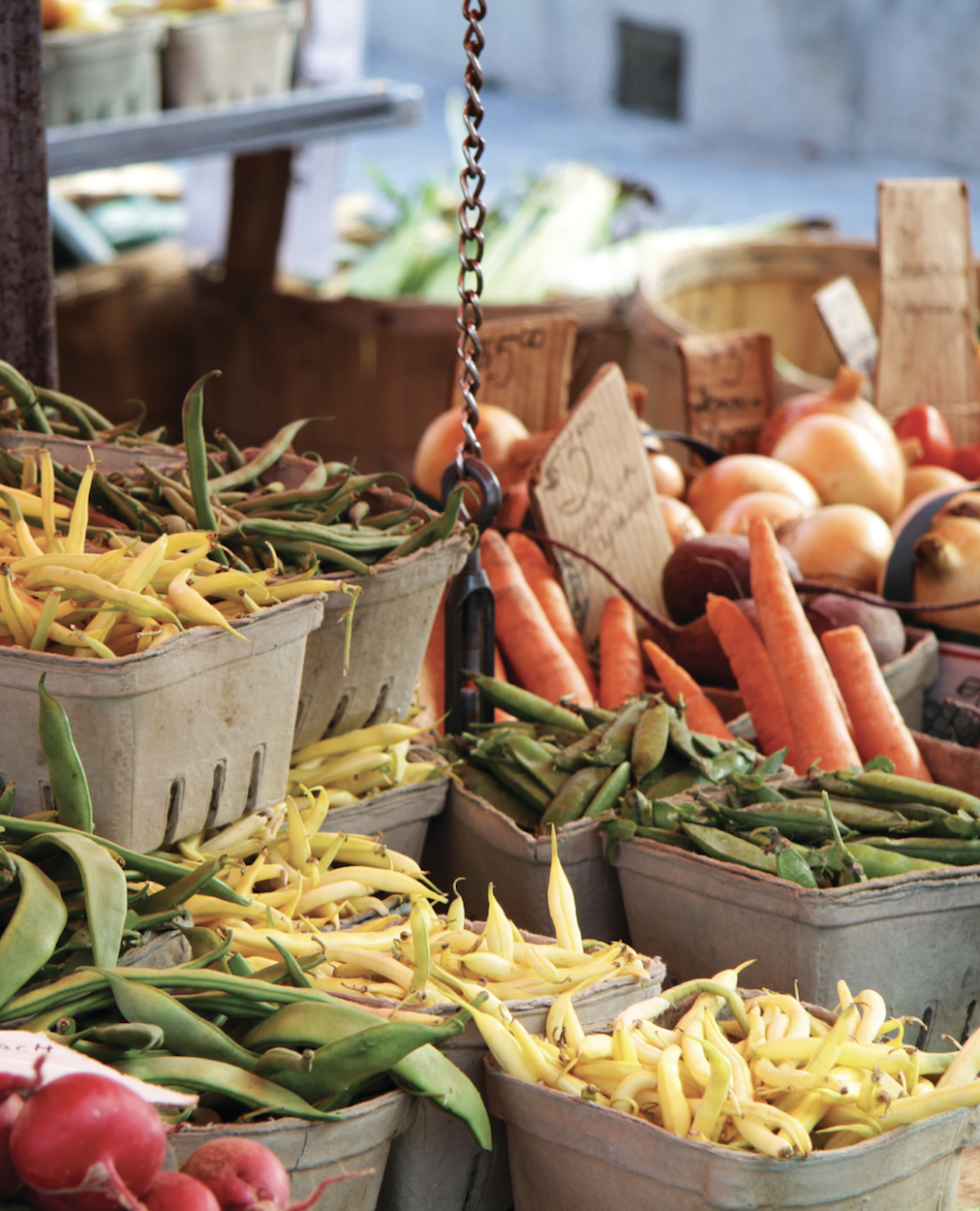Wellness
Wellness
May We Recommend

My Recipes
My Shopping List
+ Add to Shopping List
WELLNESS TOOLS
EATING BY COLOR
Blues
Orange
Green
White
Red
WHAT'S IN SEASON?
GLOSSARY
What is Sustainable Eating?

Today, more than ever, the word sustainability is heard on a regular basis. Sustainability, simply put, means to keep going, to supply with food, drink and other necessities in life.
Sustainable Eating refers to a way of raising food that is healthy for consumers and animals, does not harm the environment, is humane for workers, provides a fair wage to the farmer, respects animals, and supports and enhances rural communities. It is being educated about food, and knowing the people who grow or sell it. Sustainable eating is a way of life and a choice, where consumers shop smarter, eat healthier and enjoy an abundance of fresh local-grown products.
Why Should I Choose A Sustainable Way of Life?
Some issues to consider regarding sustainable eating are:
Animals — Animals raised on sustainable farms are treated humanely and allowed to participate in natural behaviors with room to move. Animals raised on factory farms suffer horribly due to crammed and unsanitary living conditions. Most factory farm animals never see sunlight and oftentimes their feet never touch ground. These poor creatures are not treated as living, breathing animals, but rather like commodities.
Environment — Farm soil is crucial in order to store nutrients and water, and to provide stability for plant roots. Sustainable farming keeps the soil balanced with crop rotations. On sustainable farms that have livestock, the animal waste is used to fertilize the soil. Farmers give and take from the land in sustainable ways. On unsustainable factory farms, animals excrete enormous amounts of waste every week that is often left in pits called 'lagoons.' Lagoons can spill, causing the waste to runoff into surface soil and waters where waste pollutants affect surrounding air, land, water, and the health conditions of factory farm workers.
Health — Grass-fed beef has up to six times more omega-3s than factory-farmed, grain-fed beef. Omega-3 is a good fat that helps your cardiovascular system, brain function and may help prevent cancer. Sustainable eating also involves buying local. Buying local is purchasing foods from a farm as close to you as possible. This cuts down on the length of time between the harvesting and processing of foods. Foods begin to lose their nutrients as soon as they are harvested, so less time between the farm and your dinner table means more nutritious foods for you.
Rural Communities — Sustainable farms are an integral part of the community, filtering money back into local businesses.
Taste — The majority of people eating sustainably-raised foods claim that it tastes better.
Workers — Factory farm workers oftentimes work in dangerous conditions. Animals are sometimes housed above pits that store animal waste. Workers are exposed to harmful gases like hydrogen sulfide, ammonia, carbon dioxide and methane (produced by decomposing manure). Continuous exposure to these gases can result in respiratory health issues, as well as neurological problems. Workers exposed to these types of conditions are often paid minimum wage and have no rights or say in their job. Employees on sustainable farms are paid a fair wage and are treated with respect because sustainable farmers know that fair and healthy employment ethics result in better food and a stronger community.
Similar Articles:
What dinnertime dilemma?

Easy recipes your whole family will love

Healthy Recipes for a Healthy Life

